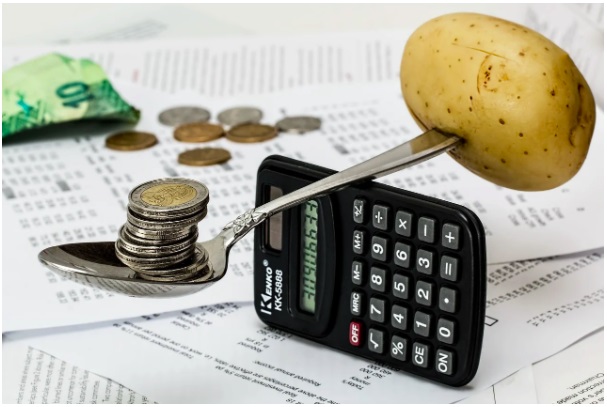Top Tips for Efficiently Planning Your Budget
Money. Can't live with it, can't live without it! Many of us struggle to stay on top of our finances, often reaching the end of a long month in our overdraft, or feeling unable to save up for anything. Some of us overuse credit and loans, while many of us have next to no savings at all.

This is not the way to live your financial life. It's time to get in control of your finances, and the best way to do that is to start with an effective budget. This can seem like a daunting and stressful task but it needn't be. In this article, we will share some of our top tips for effectively planning and managing your budget. If you feel the need to take hold of your finances, read on to find out how.
Why Is Budgeting Important?
As we have just mentioned, budgeting is important as it helps us take a hold of our finances and fully understand where we are financially. Getting a good hold on your budget early on in life sets you up well for financial security in the future. The earlier you start the better. Plus, the mental health benefits of understanding and taking control of your money are endless. Too many people spend their lives burying their heads in the sand hoping their money worries will disappear while understanding that it will never get fixed by itself. So, let's take charge and plan our first budget.
What Should Be In My Budget
The first thing you should write down is your regular income. Add to this any speculative income, savings, or other incoming monies. Then, next to this, you need to write all your regular outgoings. Everything that comes out of your bank account monthly needs to be listed. Even the $4.99 for a TV channel or the $7.99 Amazon fee. Every debt repayment, subscription fee, and bill needs to be listed. This way you can see exactly what's left over for spending. Then, you can separate that spending budget and only allow yourself to spend that much money.
Using Technology To Help
In the example above, there's a lot of writing and subtracting manually. You can use apps to help! There are many types of financial planning software and apps available. Some apps with a calendar or planner allow you to note exactly which day of the month each of your bills goes in or out of your account, helping you understand your current balance and what's left to come. Some apps simply list ins and outs, allowing you to do the manual work above without having to do the calculations yourself. In most of these apps, you will also be able to link your spending account, so you can track how well you are keeping up with your budget.
Paying Down Debt
When it comes to budgeting, it is always worth discussing debt. Lots of us have it, not many of us admit it! When planning your budget, commit to paying off your debts. The quicker you pay them down, the quicker you'll be free of debt. Debt with high interest should be paid off first, while lower value debts are able to be left until later.

Short and Long-Term Savings
It's also crucial to consider savings. We recommend paying your debts off first, as these have interest charges on them, so are literally losing you money. As soon as all the interest-heavy debts are paid, you can begin saving. Save yourself some short-term emergency money in case of loss of earnings, often known as an 'emergency fund.' This should be enough money to sustain your lifestyle for 2-3 months if you lose your job or other financial issues occur.
Then, look to long-term savings like ISAs, pensions, and ETFs. Long-term, compound interest is your friend! Everything you add to a stocks and shares ISA, IRA, pension, or ETF will gain more and more interest as it grows. This kind of savings should be looked at as a 10, 20 or even 40-year plan, setting you up for ultimate comfort in later life.
Cutting Costs
Finally, take another look at your expenses and see if you can cut any costs. Do you really need that coffee subscription or the Amazon prime account? Can you save money on your luxury food or alcohol budget? It may seem like nothing to save an extra $50 a month, but once you are debt-free and saving lots, you can allow yourself more luxuries!
These are the key elements to start planning and maintaining your monthly financial budgets. It may sound like a lot but once you have started, you will love the financial freedom and ultimate control that you feel. Your budget journey starts today!